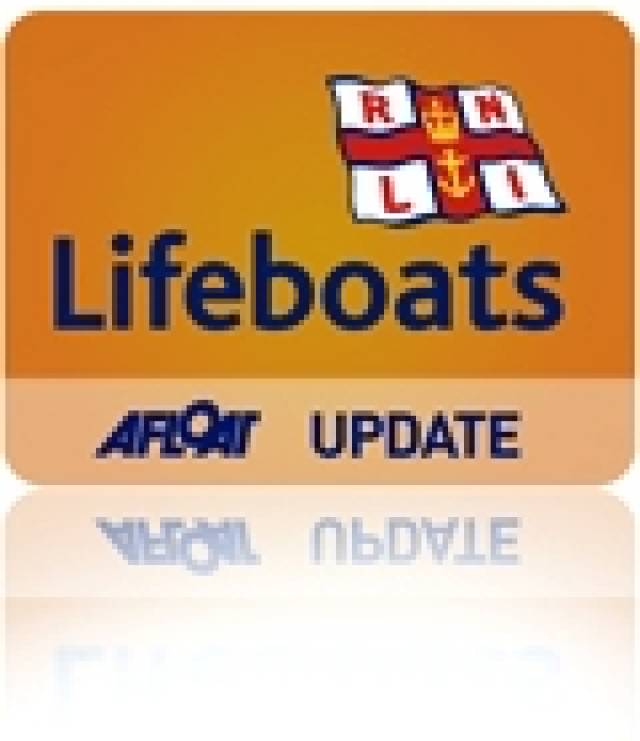#RNLI - Clifden RNLI has put an all-weather lifeboat on service for a trial period, more than a year after the move was confirmed.
The Pride and Spirit has come from the existing RNLI fleet and will be on trial for 12 months operating in conjunction with the existing inshore lifeboat service at the station.
Following the trial, the RNLI will make the call on establishing a permanent all-weather lifeboat service for Connemara's largest town.
A decision was made back in April 2012 by the charity’s trustees, with the recommendation of its operations committee, that the volunteer crew at Clifden would take delivery of a carriage launched Mersey-class lifeboat, following an in-depth review of lifeboat cover in the area.
Since that announcement, there has been an intensive period of preparation for the volunteer lifeboat crew, which has included months of training at Clifden and visits to the RNLI College in Poole.
There are currently four coxswains, four mechanics, four navigators and 16 all-weather lifeboat crew trained and ready to respond to call outs aboard the Pride and Spirit.
Clifden RNLI lifeboat operations manager John Brittain said he is proud of the additional lifeboat service at the West Co Galway station.
"This is a great day for everyone involved with Clifden RNLI. The new lifeboat will allow us to provide lifesaving cover in all weathers up to 100 miles off the Connemara coast.
"We have received great support and encouragement from everyone involved with the RNLI at both Swords and Poole. To see this group of volunteers coming together and training with the all-weather lifeboat and now going on service is a proud day for us all."
RNLI divisional operations manager Owen Medland added: "Since the announcement back in April 2012, the enthusiasm at the station has been wonderful and I am delighted that after months of training, the volunteer crew now has an all-weather lifeboat on service.
"We are continuing to work hard to establish a temporary shore facility which shall allow us to maintain Pride and Spirit ashore."
All-weather lifeboats can be operated safely in all-weather while inshore lifeboats usually operate closer to shore, in shallower water, close to cliffs, among rocks or even in caves.
Introduced as the RNLI’s first fast-carriage lifeboat, the Mersey class has a top speed of 17 knots. Designed to operate from a carriage, slipway or lie afloat, this class of lifeboat is also capable of being self-righted in challenging conditions.
The Mersey, which carries a lifeboat crew of six, has been in service for many years and shall eventually be replaced by the new Shannon-class lifeboat.
Last year, Clifden RNLI launched eight times bringing seven people to safety. Of those launches, two services were in the dark. In all, some 82 service hours were spent at sea.
A lifeboat station was established in Clifden in early 1988, and the station currently operates two inshore lifeboats.
































































